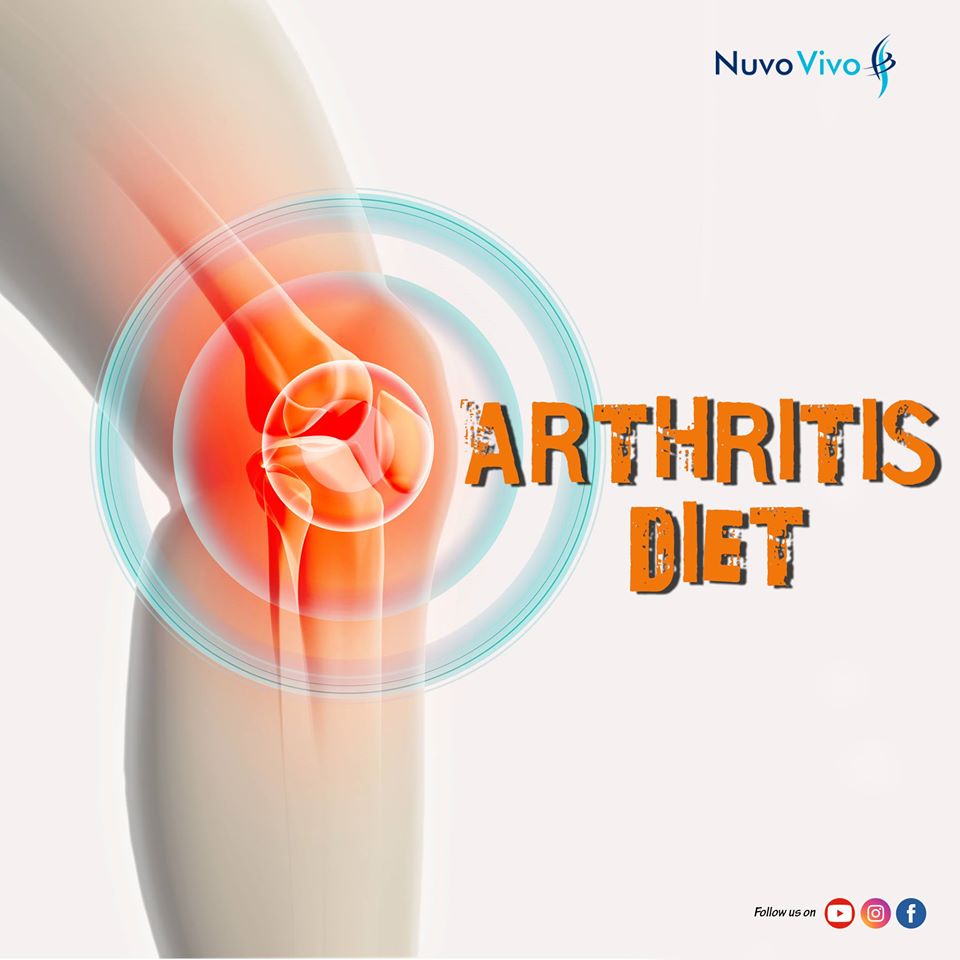Arthritis is a common condition that affects millions of people worldwide. It is characterized by inflammation and stiffness in the joints, which can cause pain and discomfort. While there is no cure for arthritis, there are ways to manage its symptoms and improve overall joint health. One important aspect of managing arthritis is through diet. In this article, we will discuss the role of diet in managing arthritis and provide tips on how to create an effective arthritis diet plan.
Arthritis Diet: What You Need to Know

The foods we eat can have a significant impact on our overall health, including our joint health. For people with arthritis, certain foods can trigger inflammation and worsen symptoms, while others can help reduce inflammation and improve joint function. This is why following an arthritis diet is crucial in managing the condition.
Foods to Avoid in an Arthritis Diet
When it comes to an arthritis diet, there are certain foods that should be avoided as they can trigger inflammation and worsen symptoms. These include:
- Processed Foods: Processed foods such as chips, cookies, and frozen meals are high in trans fats, sugar, and salt, all of which can contribute to inflammation in the body.
- Red Meat: Red meat is high in saturated fat, which has been linked to increased inflammation in the body. Instead, opt for lean protein sources such as fish, chicken, and plant-based proteins like beans and lentils.
- Dairy Products: Dairy products contain a protein called casein, which has been shown to trigger inflammation in some people. If you have arthritis, try limiting your intake of dairy or switch to non-dairy alternatives like almond milk or coconut milk.
- Refined Carbohydrates: Refined carbohydrates like white bread, pasta, and rice have a high glycemic index, meaning they can cause a spike in blood sugar levels, leading to inflammation in the body.
- Alcohol: Excessive alcohol consumption can lead to inflammation and damage to the joints, making arthritis symptoms worse. It is best to limit or avoid alcohol altogether if you have arthritis.
Foods to Include in an Arthritis Diet
On the other hand, there are also foods that can help reduce inflammation and improve joint health in people with arthritis. These include:
- Fatty Fish: Fatty fish like salmon, tuna, and sardines are rich in omega-3 fatty acids, which have anti-inflammatory properties. Aim to include at least two servings of fatty fish in your diet each week.
- Colorful Fruits and Vegetables: Fruits and vegetables are packed with antioxidants, vitamins, and minerals that can help reduce inflammation and boost overall health. Aim for a variety of colorful fruits and vegetables in your diet, as different colors provide different nutrients.
- Whole Grains: Unlike refined carbohydrates, whole grains have a low glycemic index, meaning they do not cause a spike in blood sugar levels. They are also rich in fiber, which has been shown to have anti-inflammatory effects.
- Nuts and Seeds: Nuts and seeds are excellent sources of healthy fats, which can help reduce inflammation in the body. They are also rich in vitamin E, which has been shown to improve joint function in people with arthritis.
- Spices and Herbs: Certain spices and herbs like turmeric, ginger, and garlic have anti-inflammatory properties and can be beneficial for people with arthritis. Try incorporating them into your meals for added flavor and health benefits.
Creating an Effective Arthritis Diet Meal Plan

Now that you know which foods to avoid and include in an arthritis diet, it’s time to put it all together and create a meal plan. Here are some tips to keep in mind when creating an effective arthritis diet meal plan:
- Focus on Whole Foods: As mentioned earlier, whole foods like fruits, vegetables, whole grains, and lean protein sources should make up the majority of your diet. These foods are nutrient-dense and can help reduce inflammation in the body.
- Incorporate Healthy Fats: Healthy fats like those found in fatty fish, nuts, and seeds are essential for joint health. They can help reduce inflammation and improve joint function.
- Limit Processed Foods: Processed foods should be limited or avoided altogether in an arthritis diet. They are high in unhealthy fats, sugar, and salt, which can contribute to inflammation in the body.
- Stay Hydrated: Drinking enough water is crucial for overall health, including joint health. Aim for at least 8 glasses of water per day, and try to limit sugary drinks like soda and juice.
- Consult with a Registered Dietitian: If you’re unsure about how to create an effective arthritis diet meal plan, consider consulting with a registered dietitian. They can provide personalized recommendations based on your specific needs and preferences.
FAQs About Arthritis Diet

Q1. Can an arthritis diet cure arthritis?
No, there is no known cure for arthritis. However, following an arthritis diet can help manage symptoms and improve overall joint health.
Q2. Is it necessary to completely avoid foods that trigger inflammation?
Not necessarily. While it’s best to limit or avoid foods that can trigger inflammation, it’s also important to maintain a balanced and varied diet. This means occasionally indulging in your favorite foods in moderation.
Q3. Are supplements necessary for an arthritis diet?
Supplements are not necessary if you are able to get all the necessary nutrients from your diet. However, some people may benefit from taking certain supplements, such as omega-3 fatty acids or vitamin D, to help manage arthritis symptoms.
Q4. Can weight loss help with arthritis symptoms?
Yes, maintaining a healthy weight can help reduce the strain on your joints and improve overall joint health. Following an arthritis diet can also aid in weight loss.
Q5. Can an arthritis diet benefit other health conditions?
Yes, an arthritis diet is generally a healthy diet that can benefit overall health and may also help manage other health conditions such as heart disease and diabetes.
Conclusion: The Importance of an Arthritis Diet

In conclusion, following an arthritis diet can play a significant role in managing arthritis symptoms and improving overall joint health. By avoiding foods that trigger inflammation and incorporating anti-inflammatory foods into your diet, you can help reduce pain and discomfort associated with arthritis. Remember to consult with a healthcare professional or registered dietitian for personalized recommendations and to ensure you are meeting your nutritional needs. With a balanced and nutritious diet, you can take control of your arthritis and live a healthier, more comfortable life.


Leave a Reply